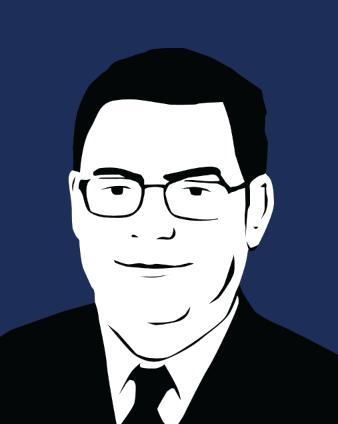Partner:
 Thank you to Pegasystems for underwriting CXOTALK.
Thank you to Pegasystems for underwriting CXOTALK.
This content is part of a program managed by the Economist Intelligence Unit, sponsored by Accenture and Pegasystems.
“Digital Evolution: Adapting Business for a Digital World” aims to shed light on the world of digital business—the strategic imperatives, challenges, complexities and pitfalls. All “Digital Evolution” content can be found here.
How the Internet of Things has put us on the cusp of a CRM revolution
You can tell a lot about people by the way they drive their cars. Over time, you can see where they shop, where they work, what hours they commute and what they like to do on the weekends.
 For businesses aiming to expand their customer relationship management (CRM) programs, this data is promising, but uncharted, territory. As smart cars get even smarter and more people buy them, companies are working to shatter the status quo by leveraging the insights into consumer habits that these data provide. While smartphones have set us on that path over the last few years, the trend is being accelerated by wearables—gadgets like smartwatches and fit trackers. Setrag Khoshafian, chief evangelist and VP of BPM Technology at Pegasystems, sees a lot of similarities between the two. “It’s becoming an interesting use case,” he says. “Your car is becoming another channel for marketing, cross sells, upsells, as well as customer service and support. It can become your largest wearable.”
For businesses aiming to expand their customer relationship management (CRM) programs, this data is promising, but uncharted, territory. As smart cars get even smarter and more people buy them, companies are working to shatter the status quo by leveraging the insights into consumer habits that these data provide. While smartphones have set us on that path over the last few years, the trend is being accelerated by wearables—gadgets like smartwatches and fit trackers. Setrag Khoshafian, chief evangelist and VP of BPM Technology at Pegasystems, sees a lot of similarities between the two. “It’s becoming an interesting use case,” he says. “Your car is becoming another channel for marketing, cross sells, upsells, as well as customer service and support. It can become your largest wearable.”
As such new mechanisms for CRM appear, Khoshafian says it’s becoming difficult to separate the hype from the true promise of the Internet of Things (IoT), a catchall moniker that includes connected cars, refrigerators, dishwashers and industrial equipment. Some expect as many as 50billion objects to sport Internet connectivity of some sort by 2020. Mass adoption will require some sorting out of privacy and security concerns between consumers and businesses. Plus, IT departments will have to find a way to handle the coming torrent of data.
THE PROMISE
Though aware of such misgivings, Khoshafian says he is bullish on IoT and believes we’re on the cusp of a revolution in CRM. “IoT has been around for a while,” he says. “It’s just now about to explode. Devices will become the most important channel for the customer experience.”
While IoT isn’t yet a mainstream concept with consumers, businesses are eager to integrate the IoT into their IT functions. A 2013 Economist Intelligence Unit survey of 779 global executives, for instance, found that 75% of the companies surveyed were either actively exploring IoT or already using it.
The reason is simple: IoT in theory offers an intimate glimpse into how consumers interact with products. Businesses can use that data to make their products better and to anticipate consumers’ future needs. “You have the opportunity to better the customer experience by understanding the data that is generating their milieu,” Khoshafian says. “You can better understand the customer—who they are, what they are, what they are doing—and extract information.” Khoshafian views this opportunity as “transformational” for CRM. A smart car, for example, will know if a crack suddenly appears in the windshield—and the owner will promptly receive offers to fix it.
DATA, DATA EVERYWHERE
One of the downsides of tapping into this deluge of data is the potential strain on IT departments. Khoshafian says this is already happening. Among the challenges is storage. The “storage problem,” as Khoshafian terms it, has prompted the rise of NoSQL databases.
Separating the wheat from the chaff is another issue. “Let’s face it, the majority of this data is noise,” Khoshafian says. “Not all data is valuable.” The data also comes with security issues. “Companies will have the ability to capture insightful usage data from every customer,” he says. “About their health, about their behavior, about where they went."
Consumers understandably may be hesitant to share such depth of information. Over time, the industry may need to work out a sort of bill of rights for customers and find a middle ground between protecting their privacy and using the data they generate to improve the customer experience.
This tension over privacy is hardly new. It has been around since the dawn of the Internet. IoT is merely the latest manifestation of the push-pull between consumers and industry since the beginning of the computer age, but this tension has ramped up since social media and smartphones became mainstream. “If the customer wants better services, they have to be willing to give up more information about themselves,” Khoshafian says. “It’s like if you want to make more friends on Facebook, you have to say something about yourself.”
Another potential hindrance is security. Since IoT devices tend to offer paltry processing power and memory, they become easy prey for hackers. Such criminals have already demonstrated an ability to tap into TVs, webcams and smart refrigerators. Even medical devices are vulnerable to attack.
While it’s difficult to accurately predict the spread of technology, Khoshafian believes mass adoption of IoT is inevitable. Certainly the business world isn’t waiting. As automakers race to get their connected cars on the road, other industries are integrating IoT into their operations as well. For IoT proponents, the road to revolution is pretty clear.
Presented By: Pegasystems
Aug 04, 2015
